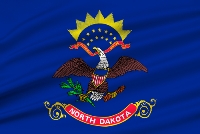Villanova University in Pennsylvania has named Tej Patel as its new vice president for IT and chief information officer (CIO), effective Sept. 9.
Wyoming Gov. Mark Gordon has appointed Jeff Clines as the new chief information officer of the state’s Department of Enterprise Technology Services (ETS), effective Sept. 9.
Chattanooga, Tenn., Mayor Tim Kelly announced that his administration has tapped Jerele Neeld as the city’s new chief information officer (CIO).
San Francisco Mayor London Breed and City Administrator Carmen Chu have appointed Michael Makstman chief information officer (CIO) of both the city and county of San Francisco, and director of the San Francisco Department of Technology.
North Dakota Gov. Doug Bergum has appointed Greg Hoffman to serve as the state’s chief information officer (CIO) and to lead the North Dakota Information Technology (NDIT) department.
Hawaii Gov. Josh Green has tapped Christine Sakuda to serve as the state’s new chief information officer (CIO) overseeing the Office of Enterprise Technology Services (ETS), effective Aug. 5.
Frederick County, Md., Executive Jessica Fitzwater has appointed Ty Howard as chief information officer (CIO) and director of the Division of Interagency Information Technologies effective July 15.
North Dakota state CIO Kuldip Mohanty has announced that he will retire at the end of this month, citing family reasons.
Nebraska Gov. Jim Pillen has named Matthew McCarville as the state’s new chief information officer (CIO).
Philadelphia Mayor Cherelle Parker has tapped Melissa Scott to become the city’s new chief information officer (CIO). Scott will also lead the city’s Office of Innovation and Technology.








